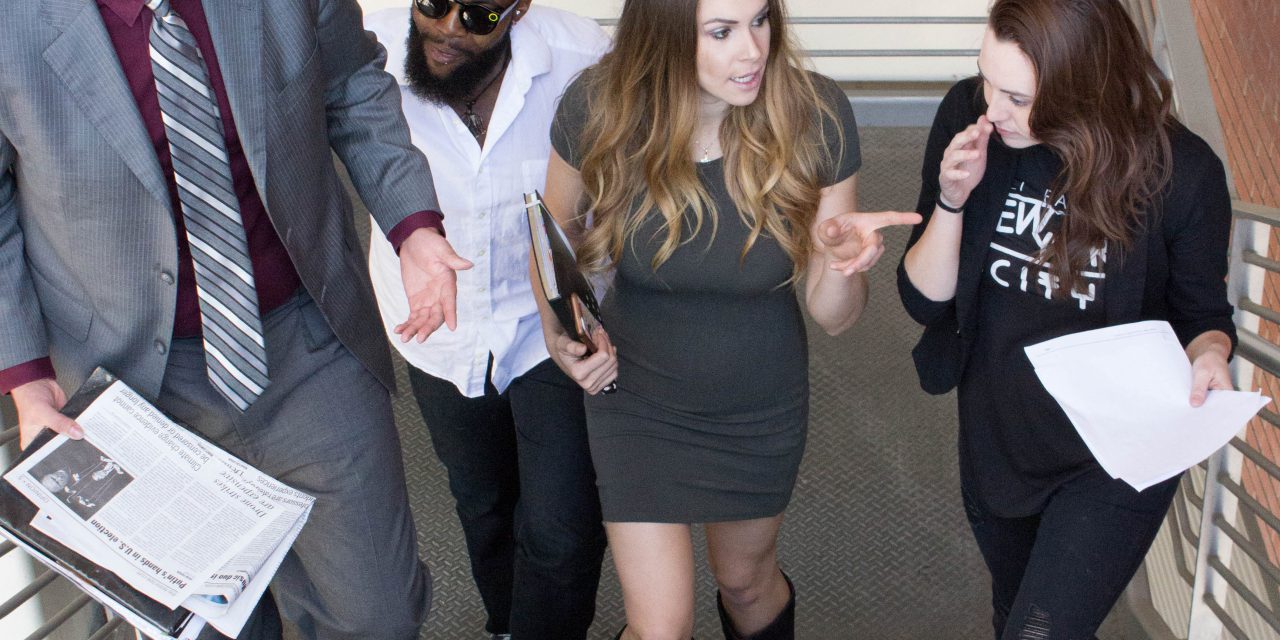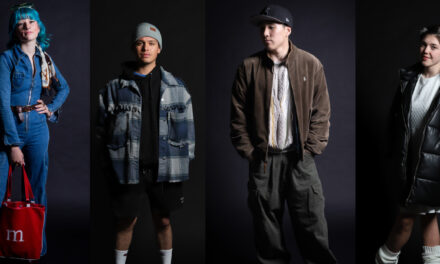Thirty-one year old Bruno Aschimanini is probably the last guy you’d imagine creating and selling trendy towels aimed at young women, but that’s precisely what he and his partners do out of their two-bedroom Pacific beach apartment.
Along with Steven Ford, 26, and Brandon Leibel, 26, they are founders and creators of the trendy beach towel company named Sand Cloud, based out of San Diego.
Sand Cloud, as described by Aschimanini, was created when Ford and Leibel woke up uncomfortable from a nap on the beach and thought how awesome it would be to have towels with pillows in them. Since then the company has ditched the pillow-in-towel design in favor of just simple towels with an assortment of patterns and designs. Aschimanini said their designs are all hand picked by their brand ambassadors, the girls that’d be using the product and advertising it. Prior to joining his partners, Aschimanini was selling life insurance.
“Often times when you’re working a corporate jobs you don’t get home until dark. We wanted our job to make a difference and we wanted control over our own destiny,” Aschimanini said.
This was quite the jump, from having benefits and a 401k-retirement plan to selling towels out of an apartment, but not surprising. More and more millennials are deviating away from the career paths set by Baby Boomers, and carving their own way into the corporate world while simultaneously changing the nature of the business game.
In the book, The Business of Good, by Jason Haber, he classifies millennials as people born from 1980 to 2000 and explains how the ‘now’ attitude of millennials has prompted them to start creating their own business and become their own bosses instead of waiting to climbing that corporate ladder like the last generation did. But according to research featured in Haber’s book, a vast 94% of millennials also want their work to make some sort of beneficial impact in society or the environment; a brand with a purpose.
Jenny Amaraneni, 32, creator of SOLO eyewear, set out to do just that: a brand with a purpose.
“I started the company after learning about the need for eye care in the world and wanting to find a way to address that need sustainably,” she said.
She was part of San Diego State’s MBA program where she was enrolled in an international entrepreneurship course when she came up with the concept for her business. Amaraneni had just finished reading “Out of Poverty,” by Paul Polak, who reveals the need for eye care in the world in his book, when she was assigned to create a concept for a social enterprise as a project. It was then when she first conceptualized her brand.
Aschimanini’s company, like Amaraneni’s SOLO brand, also stemmed from a philanthropic purpose.
“Our end goal is to support marine life and marine life organizations,” he said, “a beach towel with a purpose.”
Sand Cloud and SOLO eyewear aren’t the only ones going beyond their brands to make a social impact. Popular brands like Pura Vida are also centering their vision on charitable cause. Created by Griffin Thall and Paul Goodman after a college graduation trip to Costa Rica, Pura Vida bracelets encompasses their philosophy around living life to the fullest and not taking anything for granted.
As of March 2017 they’ve given $935,358 to over 190 different charities and looking to continue to expand their line of charity. But does having a brand that gives back matter to millennials like research claims?
“It’s an added bonus,” said 21-year-old Annalisa Collins, a business major at San Diego State University and one of Sand Clouds’ brand ambassadors.
“If there are two of the same product I’m going to go with the one that gives back,” she added.
When asked why she agreed to join on as ambassador she explained that Sand Cloud made a product that she would use while also giving back to a cause that she highly valued.
“I definitely think that we’re a generation that is more aware about where our products come from and where our money is going, we’re just very aware of social responsibility,” Collins replied.
Jean Case, an investor and philanthropist, told Haber in his book, “This generation will use their role as a consumer to make a point;” which meant that millennials who want to make a change, make their life matter, and hold an impact will start with what they buy.
Haber further described that phenomenon as ‘buy-cotting’, a sort of activism used by this generation to show what matters to them the most. Collins validated Haber’s statement by confirming that her generation is aware of having social responsibility, and how that influences what they buy. But how do millennials transition from being consumers to becoming content creators? How do they start their own brands that also serve a bigger purpose?
Just start. Both Aschimanini and Amaraneni agree that there is no right first step on how to start.
“When there’s an idea that you have in your head, do something,” said Amaraneni. “The truth is it just doesn’t matter [how you start], get out there and try.”
“It’s like putting together a puzzle piece… you start with the corners and make your way towards the middle” said Aschimanini.
They also agreed that you probably wouldn’t get everything right when you’re first starting to create your brand but they did gave sage advice on success for getting started.
Amaraneni encouraged new entrepreneurs to find mentors that would help them start their journey and ask them questions.
“Find people in the community that you admire and offer to buy them a cup of coffee to ask them questions, I guarantee you’ll get that meeting.” She said that by doing this you’d be making a connection with someone who’s experienced and also getting mentorship.
“You wanna make sure you surround yourself with smart people who are gonna lift you up and help you move forward,” she added.
Aschimanini’s advice is to take your time. “You have your whole life to be successful,” he said.
“Don’t be scared of trying new things, don’t be scared of going out there and getting [want you want].” He, like Amaraneni, also valued the importance of getting an education and going to college to gain the skills necessary to start a business.
“When you’re starting a company and you’re a student you’re in the perfect spot because you’re surrounded by people who have talents in different areas who can come together and create great things” said Amaraneni.
The bottom line is to get started. No matter what the company idea is, a new entrepreneur needs to find a way to start and keep going without giving up. Like any new entrepreneur, you’ll mess up and make mistakes, but that’s how you figure out what works and refine your methods. As for the philanthropic side of a business, figure out how you can give back with your product by researching how to create sustainable merchandise, or by pairing with an organization with a cause that you care about and help donate to it.
“We’re [all] trying to do something that matters, people want their life to count,” Collins said.






Recent Comments